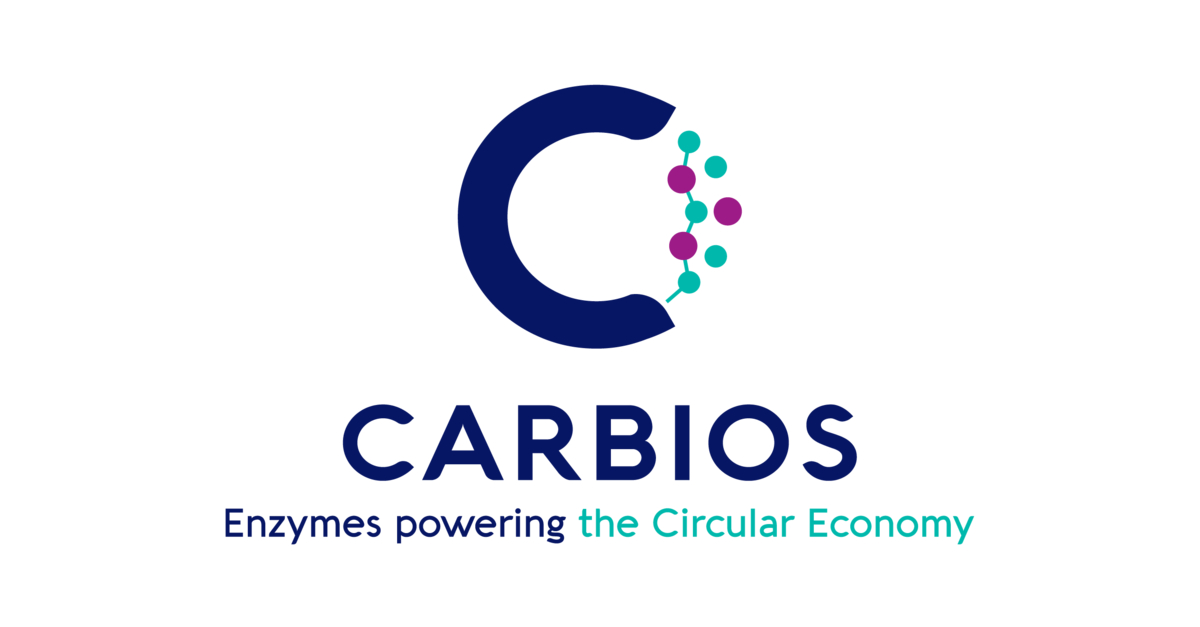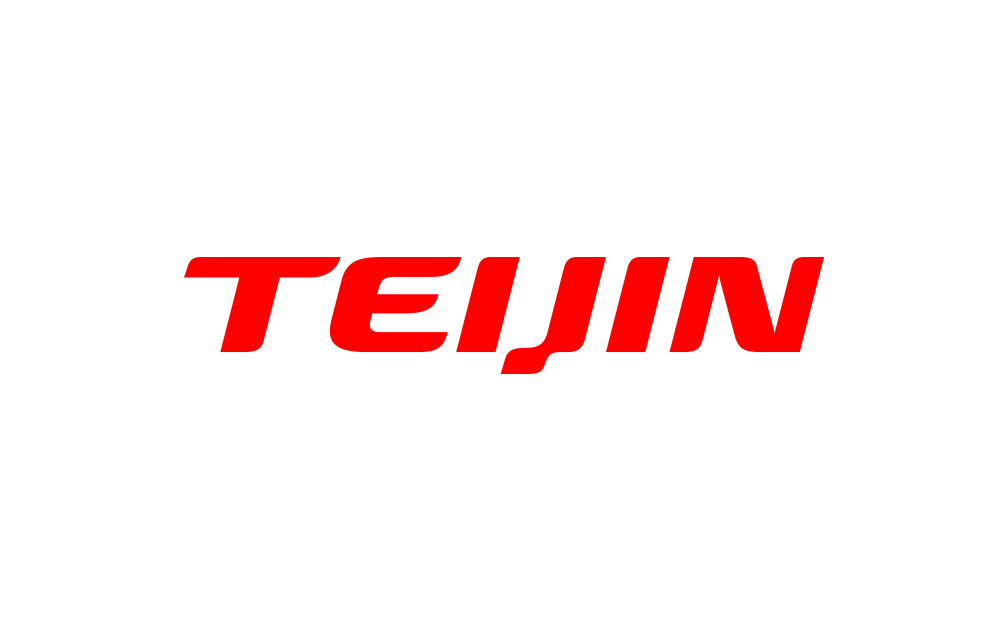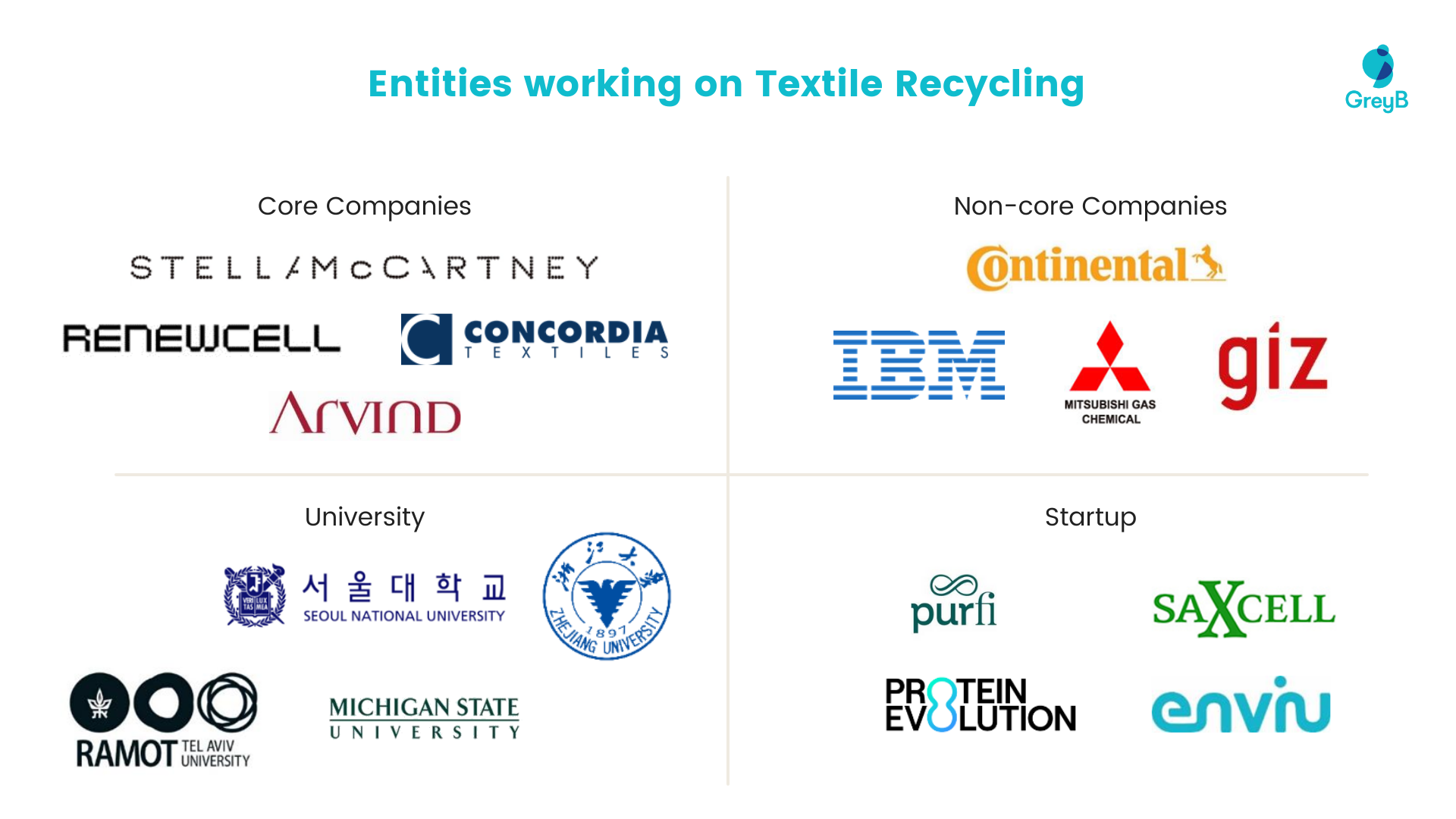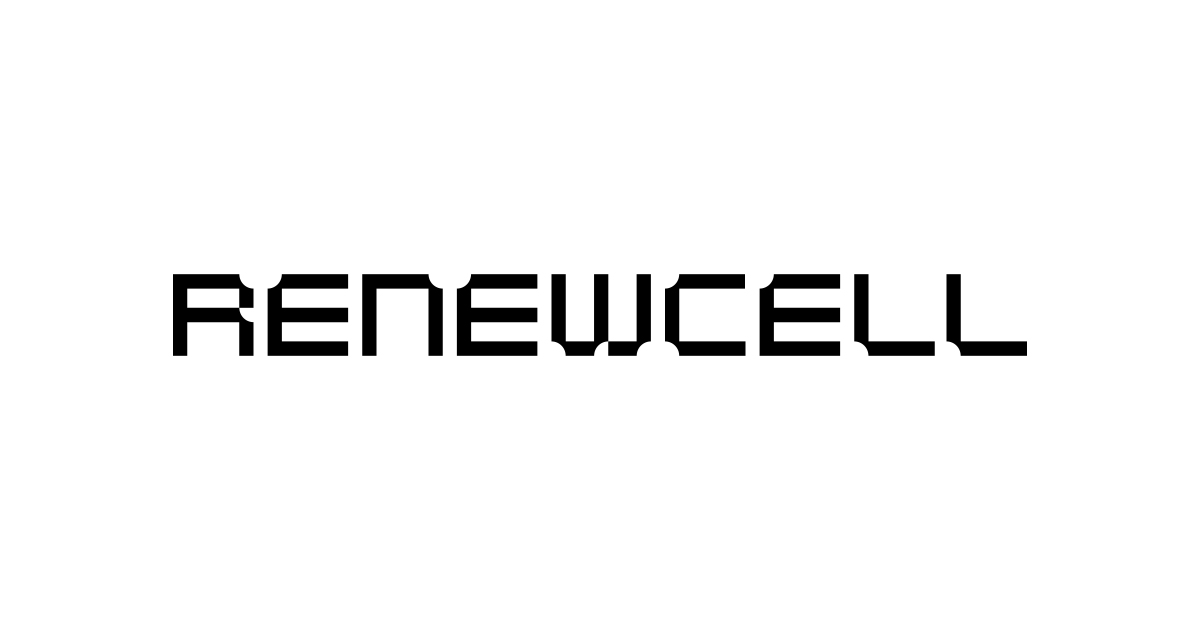Polyester Textile Recycling: Making The Fashion Industry Achieve Sustainability
With the rise in athleisure trend, the market for polyester fabric is expected to grow at a CAGR of 7.8 from 2021 to 2027.
But did you know that to break it down naturally, the fabric requires anywhere from 20 to 200 years. That’s way too long! Isn’t it?
Therefore, governments worldwide are responding with stricter regulations on waste management and sustainable practices, prompting the industry to explore more efficient ways for textile recycling.
Further, in 2021, the Textile Exchange challenged 132 companies to increase their use of recycled polyester ranging from 45% to 100% by 2025.
In this article, we’ll look into the recent notable developments made in textile recycling and know about the firms who are behind these changes.
Old Threads, New Fashion: A Circular Recycling Process
Polyester Recovery from Textile Waste Using Enzymes

Carbios, a biochemistry startup based in France, utilizes the “Cutinase” enzyme to break down polyester material found in textile waste, including blended fabrics. Unlike traditional recycling methods that degrade polyester quality, enzymatic recycling operates at the molecular level, enabling the recovery of virgin-quality material that can be recycled indefinitely, creating a circular process.
As part of their commitment to sustainability, Carbios has collaborated with On, Patagonia, PUMA, and Salomon to develop solutions that enhance product recyclability and circularity. To ensure a steady supply of the enzyme, Carbios has partnered with Novozymes, a Denmark-based biotechnology company, to produce their proprietary enzyme.
Recycling Colored Polyester Fibers with Depolymerization Catalyst

Teijin, a Japan-based chemical company, has developed an advanced recycling technology using a depolymerization catalyst to recycle colored polyester fibers while preserving their quality.
The company has adopted a de-polymerization catalyst instead of the conventional bis (2-hydroxyethyl) terephthalate (BHET) method to chemically break down and purify polyester back into BHET intermediate raw material before re-polymerization. This process is simpler compared to using dimethyl terephthalate (DMT) and ethylene glycol in a trans-esterification reaction, resulting in recycling with lower energy consumption.
Additionally, the technology enables resource reuse, including wastewater, thereby reducing the environmental impact.
Teijin Frontier plans to launch a pilot facility at its Matsuyama Plant in Japan and proceed with verification tests for this innovative recycling solution.
Who is working in Polyester Textile Recycling?

Significant Collaborations in Polyester Textile Recycling
Stella McCartney & Protein Evolution
Protein Evolution (PE), a biological recycling company, has partnered with Stella McCartney, a fashion brand, to address textile waste. Starting in 2023, PE took excess polyester and nylon fabric from Stella McCartney’s collections, utilizing its enzymatic technology to recycle these materials responsibly.
Concordia Textiles & GIZ & Enviu
Enviu, a venture building studio with a focus on the circular economy, has teamed up with GIZ, a German agency working on sustainable economic, ecological, and social development, along with Belgian corporate Concordia Textiles and Purfi Global, a circular fiber company. Together, they are leveraging Purfi’s technology to establish a circular solution that transforms textile waste into high-quality virgin fibers. The primary objective of their partnership is to recycle 40 million kilograms of textile waste by the year 2024.
In our search for collaborations, we noticed a firm engaged with multiple partners. Intrigued we dug further to find the reason for these partnerships.
What is Drawing Major Brands & Industry Players to Partner with Renewcell?

Renewcell’s technology has proven its ability to separate materials, coupled with its economic viability, making it an attractive choice for companies aiming to embrace sustainable and environmentally friendly practices in the textile industry.
Founded in 2012 in Sweden, Renewcell established a pilot textile recycling plant in 2018 and successfully commercialized their products in 2020. Their patented (EP2817448A1) innovative process involves exposing textiles to an alkali solution (KOH and NaOH) at a pH above 9, followed by adding an organic solvent to precipitate cellulose, effectively addressing a significant challenge in textile recycling.
The industry has long struggled with separating cellulosic and non-cellulosic content, hindering the widespread adoption of closed-loop textile recycling. Renewcell’s technology, however, seems to have made some headway in addressing this. Although their technology can handle only around 10-15% polyester content, they have introduced Circulose, a natural material made entirely from 100% recycled textiles, to solve this problem.
This unique capability has caught the attention of major brands and textile players, leading them to forge long-term partnerships with Renewcell.
Conclusion
With the ongoing industry developments, it is expected that the coming years will witness further progress and innovation in textile recycling.
But that’s not all, there are many other trends that will change the face of the industry as we know it. Know more about these trends in our 2024’s Textile Industry Trend Report.
Fill out the form below and download the report now!
Authored By: Ambuj, Navjit, and Sushant, Patent Intelligence
Edited By: Ridhima, Marketing
Also Read: 5 trends in the textile industry steering a sustainable and tech-driven tomorrow




